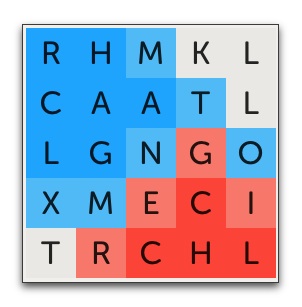I like Netflix’s House of Cards. I get so caught up in the show that I am seduced into binge-watching because I don’t want to wait to see what happens next. I watched the entire first season in less than a week and was enthralled the entire time. I finished the entire second season in even less time. It’s sort of an anti-The West Wing, revealing the depth of the machinations and corruption that lie behind the public facade of politics in Washington. Rarely, if ever, is anything done out of a desire to serve the public good. And it’s all deliciously played by Kevin Spacey and Robin Wright. The way they juggle the deceit and backstabbing is truly outstanding.
That said…
I almost gave up watching the show after the end of the first episode of Season 2 [Spoiler alert: I’m about to reveal plot details]. Here’s why:
Frank Underwood, the Vice President (and eventual President) of the United States, is a serial killer.
The utter unbelievability and ridiculousness of the above sentence is impossible to overstate. I thought House of Cards was supposed to be a serious, if not entirely realistic, drama about the underbelly of American politics. Instead, it turns out to be spin-off of 24. I expected Jack Bauer to pop out at any moment.
I was (barely) able to accept last year’s murder, born out of desperation and meant to shock us as we discover just how depraved Frank Underwood really is. But this second murder? No way. Not even close.
According to the show’s plot lines, Frank Underwood, one of the most well-known public figures in Washington, can commit murder anytime he gets the slightest urge. Even “better,” he can do this without raising any suspicion—save for Zoe and Lucas and company. As Janine tells Lucas while he his behind bars, Underwood is going to “get away with it.” True to her prediction, the subject of the murders barely appears on the radar for the rest of the season.
With Tusk trying to uncover every iota of dirt that he can find on Underwood, and newspaper reporters doing their own digging, is it really plausible that no one even gets a whiff of what Underwood has been doing in his spare time?
The end result is that the viewer is left with a sense that we are supposed to treat these murders as some minor character flaw, much less significant than Underwood’s plan to get the President impeached. It’s hard for me to swallow this.
As bad as all of this is, it’s not the biggest problem with the plot development. That award goes to the way Zoe’s murder was carried out.
The way Zoe’s murder is carried out is even more absurd than who did it. Ten times more absurd.
After watching the murder scene, I asked myself: Had Frank already decided, prior to arriving at the subway platform, that he would kill Zoe if she wasn’t willing to play ball? Or was the murder a spur of the moment decision? As I thought about it, I realized that it doesn’t really matter. Either way, it makes no sense.
If he planned the murder in advance, that meant that he somehow knew how to time the conversation so that, at the exact moment he walked away and Zoe followed him, a train would be arriving…allowing him to push Zoe off the platform just as the oncoming front car was approaching. How could he count on things going that well? He couldn’t. For starters, what if Zoe hadn’t followed him and had instead turned around and left? The planned murder would fail.
And let’s not forget the security cameras. Had Frank actually scoped out their locations in advance so that he knew where to stand to avoid being recorded? Remember, not only was there no video evidence that Frank was the culprit, the camera didn’t even pick up that Zoe had been pushed at all! Could Frank be certain this would be the case? Really? How? I can hear my credulity snapping.
One more thing…Frank also had to be sure there would be no witnesses to the crime. But how could he know that no one was in his line of sight at the crucial moment? Actually, he pretty much had to count on no one knowing he was in the vicinity of the train station at the time. The about-to-be Vice President goes off to commit murder at a public subway stop and no one has any clue? <sigh>
Lastly, Frank is generally smart enough to find a way to have others commit crimes for him, so that he can’t easily be connected to the acts — as when he sets up Lucas to get arrested for cyber-terrorism (which, by the way, no one in the media has an inkling about as yet). Why couldn’t he do something like that to get rid of Zoe? Even given the murder he committed last season, it seems out-of-character that he would allow his hands to get so directly dirty. [By the way, I had a similar reaction to the final episode of PBS’s Sherlock Holmes: Would Sherlock really resort to murder as a solution? No. It’s beneath his intellect.]
OK. What if, instead, Zoe’s murder was an unplanned spur of the moment decision? It’s just as bad. In this case, we have to believe that all of the fortuitous circumstances I cited, such as the camera not detecting him, were just the result of “good luck.” Again, it’s impossible for me to believe that (a) Frank would leave something so critical up to “luck” and (b) that he would actually get all the luck he needed.
Bottom line
As the opening episode of Season 2 was drawing to a close, I found myself reaching for the Off button. I came very close to pressing it. But I kept going. And I’m glad I did. A good part of the rest of House of Cards was diabolically nuanced, so unlike what I’ve discussed here. It was fun to watch. Yes, it’s implausible that Underwood would have succeeded in becoming President the way he did. But it remained within the range of acceptable for me. As for the murders, is it too much to ask that scriptwriters come up with plot developments that doesn’t insult the viewer’s intelligence? Ones that don’t require that we stretch our “suspension of disbelief” so far that it breaks entirely? Unfortunately, it too often does seem too much to ask.






